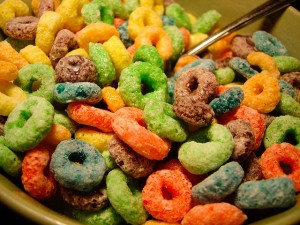 Synthetic Foods are those that have been produced or manufactured using new methods with the help of advancements in technology. These types of foods usually contain a high amount of protein. Synthetic foods are developed from food substances that have been chemically synthesized. Also known as artificial foods, these foods generally imitate the appearance, odor and taste of natural foods.
Synthetic Foods are those that have been produced or manufactured using new methods with the help of advancements in technology. These types of foods usually contain a high amount of protein. Synthetic foods are developed from food substances that have been chemically synthesized. Also known as artificial foods, these foods generally imitate the appearance, odor and taste of natural foods.
The Development of Synthetic Foods
There is very little supply of food that contains complete proteins. Complete protein foods refer to foods that contain all amino acids that are not produced by the body. This has become a major concern because almost 75% of the world’s population is affected by the shortage of these kinds of foods. Ultimately, this led to the development of artificial food products that contain complete protein. The proteins contained in these artificial foods were derived from natural foods. Synthetic foods are created by the combination of food substances and subjecting these substances to different modern processes in order to obtain the desired food product.
Various Methods and Sources of Synthetic Foods
Artificial food products are based from traditional and nontraditional animal and plant sources. Examples of these sources include soybeans, sunflower seeds, sesame, oil cake, green vegetables, casein and marine sources. Another major source of protein for artificial foods is the protein produced by microorganisms. For instance, yeasts produce protein and are able to grow on mediums like sugar, or nonfood mediums like petroleum hydrocarbons. Because of this ability of yeasts, it has become a promising source of synthetic foods.
The production of artificial foods from chemical compounds did not become a reality until the 1950s. Advancements in molecular biology, physical chemistry, physics, biochemistry and colloid chemistry, made production of synthetic food from chemicals possible. A number of artificial foods have been derived from different chemical compounds. This have been done with the help of modern processes that have been developed, along with advancements in technology.
Arguments Against Synthetic Foods
A lot of consumer groups are active in their promotion against artificial or synthetic foods. All arguments against this type of food boils down to one thing, that synthetic food is possibly harmful to one’s health. The addition of synthetic chemicals like pesticides, heavy metals, food dyes and artificial preservatives to food could already affect its composition or nutritional value. Modern techniques that are being done on food such as genetic engineering, hydrogenation or irradiation could also lead to the same effect, which could ultimately lead to the development of a number of diseases.


It was still not clear as to what is “synthetic” and what isn’t. All I could assume was that fruit loops were synthetic which is false because all the flavors are artificial. So that leads me to only think that the other foods you listed are synthetic which also isn’t true. Please list the real synthetics with 100% research to back up your claim.
Why is there no examples of synthetic foods? All I could take away was that fruit loops were synthetic, which is false because they are artificial.
this article is so cool!!! i love learning about synthetic materials, and reading about man-made foods is really intriguing!! xx
Melanie-
I know! i find this stuff so cool. right now were learning about it in science, and health (same teacher). so happy to have found someone else who shares the same interest as me
protein (bsia) may be used in rice powder for giving the shape of rice ie synthetic food!Artificial flavour may be added to improve the quality of the low grade rice powder.
The article was vague without examples, yes. What I would like to know is if there are synthetic foods in existence the are not derived from carbs and proteins, ie amino acids and polysaccharides?
This article begs the question (what advancements, what technology?) of exactly what are synthetic foods and doesn't give examples.